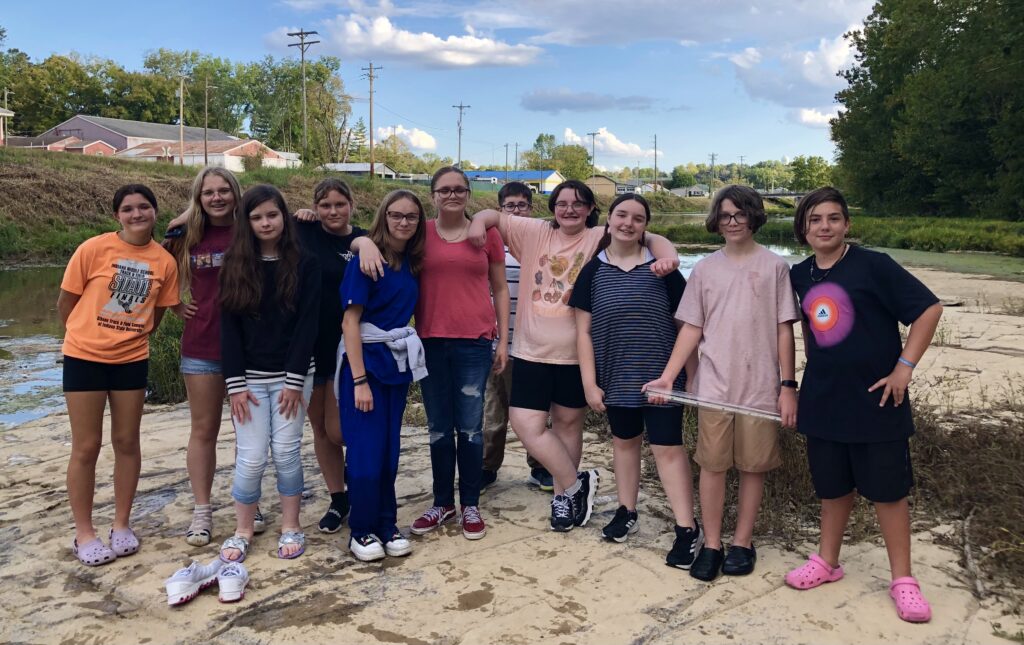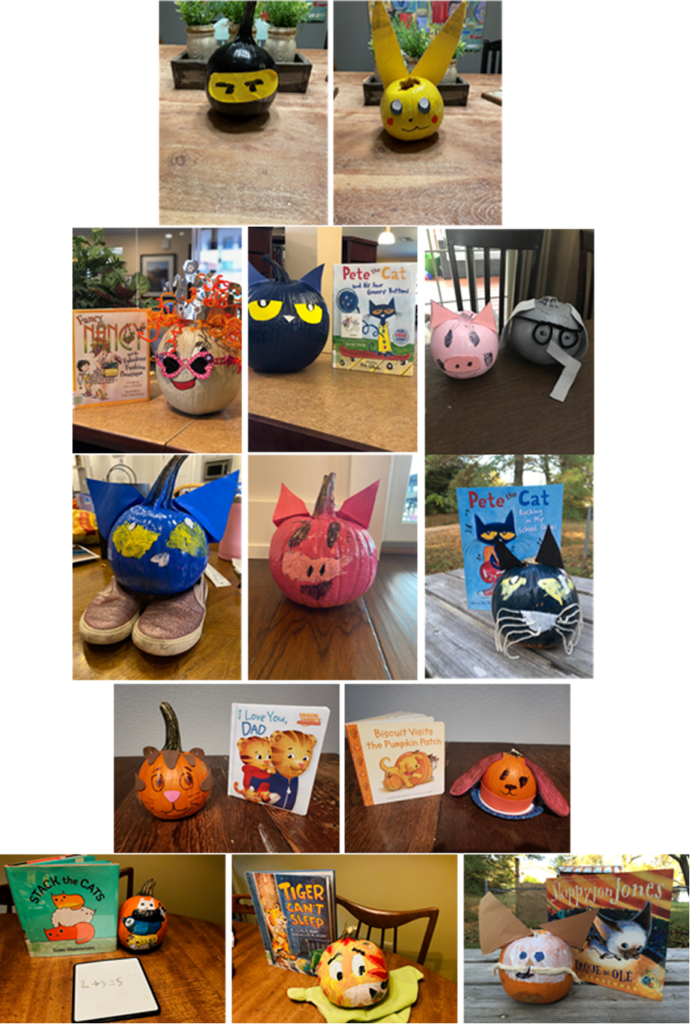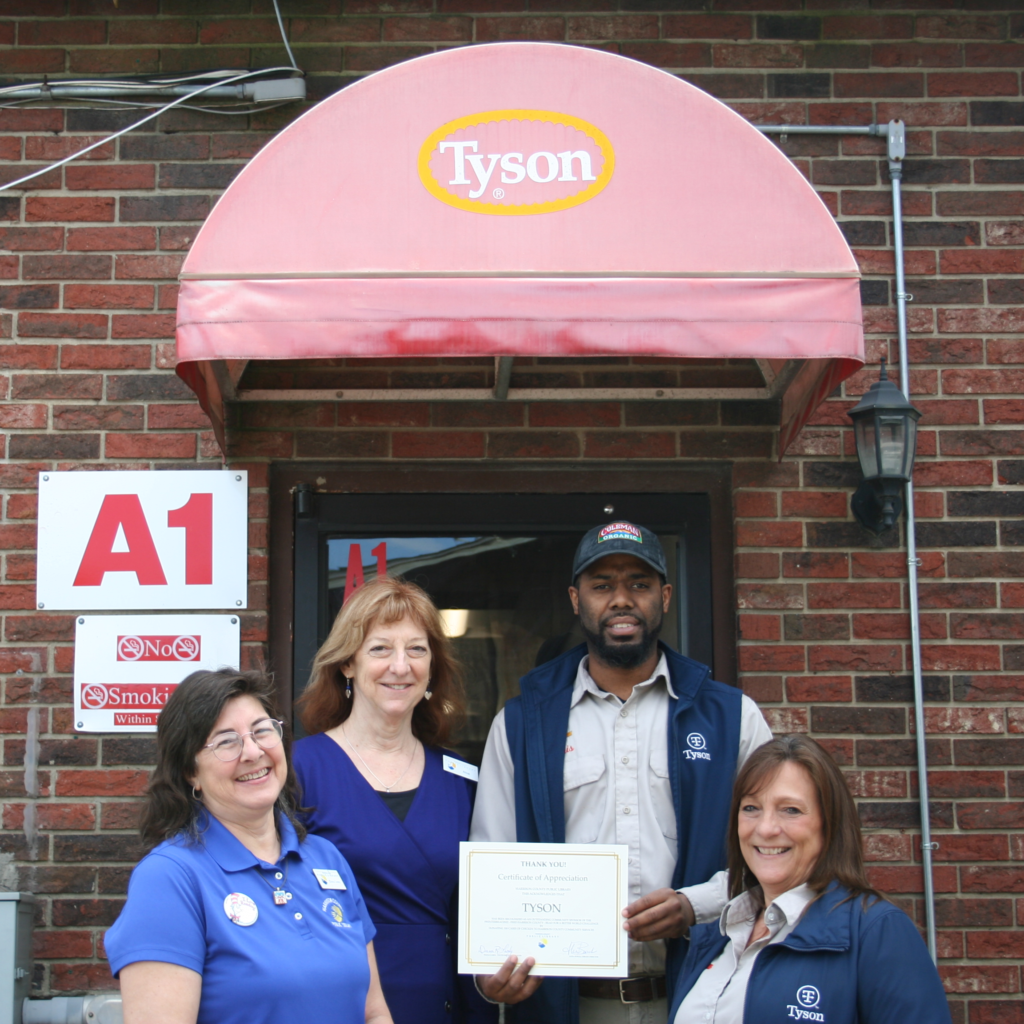Eleven Teen Volunteers visited Indian Creek last Tuesday to test water quality for the Hoosier Riverwatch program. The teens used a dip net and kick seine to collect macroinvertebrates (insect larvae and other tiny aquatic animals) that cling to rocks and plants in the creek’s riffles. The species found included damselfly nymphs, stoneflies, riffle beetles, and water pennies, all of which can only survive in clean water. Despite murky conditions caused by a recent drought, this diversity of insects scored a Pollution Tolerance Index of 25, which is considered Excellent Water Quality.
The teens also conducted a range of chemical tests. Here are the results:
Dissolved Oxygen: The amount of oxygen available in the water for fish and other animals to breathe. DO is reduced by excessive algae growth, which is in turn caused by fertilizer pollution. Indian Creek scored 11.5 mg/liter. The state average is only 9.6 mg/liter (higher=better).
5-Day Biochemical Oxygen Demand: The amount of oxygen used up by algae and bacteria over five days. Indian Creek scored 4.5 mg/liter due to excessive algae. The Indiana average is 2 mg/liter (lower=better).
pH: The acidity of the water. Indian Creek scored excellent at 7.25 pH (the state standard is 6-9).
Orthophosphates: A type of fertilizer pollution. The teens found no trace of orthophosphates in the water.
Nitrate: Another fertilizer pollutant. Indian Creek scored 2.2 mg/liter. The Indiana average is over 12 (lower=better).
Turbidity: The murkiness of the water. Indian Creek scored 17 NTUs. The state average is 15 (lower=better), but the EPA recommends a limit of 10.4. Indian Creek is usually much clearer than this.
Although the drought caused poorer conditions than are typical, Indian Creek still earned a Water Quality Index of 80/100, a rating of Good. These results have been submitted to Hoosier Riverwatch, where the data will be freely available to scientists and the public. Thanks to our Teen Volunteers for helping protect Indiana’s precious waterways!
Teen Volunteers meet most Tuesdays at 5 p.m. at the Corydon Branch. Call the library at 812-738-4110 for more information or to learn how you can participate.





